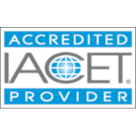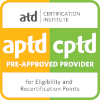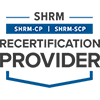Product Details
Topics Covered
- GAAP
- Double-entry accounting
- The accounting cycle
- Financial statements
- The entrepreneurial process
- Budgeting (cash and master)
- Pricing strategies
- Fixed and variable costs
- Pro forma financial statements
- Financial planning
- New venture assessment
- Break-even analysis
- ROI
- Payback period
Key Features
- Mobile-friendly
- Audio-enabled
- Badge and credit-awarding
- Real-world case studies
- Fully accessible
- Games & Flashcards
- Expert-supported
- Video content
Course Preview
Course Description
Learning Outcomes
- Understand and explain the assumptions and principles that underlie Generally Accepted Accounting Principles (GAAP)
- Understand and explain the rules of double-entry accounting
- Calculate the balance of the account
- Define the steps that make up the accounting cycle
- Describe the relationship between the major financial statements that make up an annual report
- Explain the role of finance in the entrepreneurial process
- Understand the importance of budgeting and financial planning
- Identify and explain the three major pricing strategies
- Define and distinguish between fixed and variable costs
- Calculate the components of a master (static) budget
- Prepare a cash budget
- Prepare and analyze pro forma financial statements
- Develop a basic financial plan
- Use pro forma financial statements to evaluate a new venture
- Explain the factors and assumptions involved in break-even analysis
- Calculate Return on Investment (ROI) and payback period
Notes
This course has an "Ask the Expert" feature, which submits your questions directly to an expert in the field you are studying. Questions are answered as quickly as possible and usually within 24 hours.
As an Accredited Provider, MindEdge offers for its learning events that comply with the Continuing Education and Training Standard.
Learners must achieve an average test score of at least 70% to meet the minimum successful completion requirement and qualify to receive credit. Learners will have three attempts at all graded assessments.



